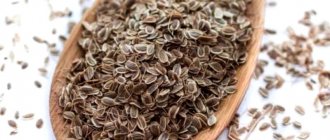Melon is a diuretic pumpkin; it has not only a diuretic property, but also a rejuvenating one that helps in weight loss. The fruit will not be able to get rid of edema in serious pathologies, but it will eliminate morning drooping eyelids and swelling of the hands. An important criterion before consuming pumpkin is determining whether melon is truly a diuretic product, since otherwise you can harm yourself even more.
Sun pumpkin as it is
Before determining whether melon acts as a diuretic or not, it is necessary to consider which fruit should be chosen for consumption. First of all, you should purchase only properly grown melons that do not contain pesticides and other chemicals hazardous to humans. A low-quality product can be determined by the appearance of the fruit.
So, melon is:
- an annual herbaceous plant belonging to the pumpkin family (this fact indicates that melon belongs to vegetables, and not to berries or fruits);
- stems creeping, producing many tendrils;
- the leaves on the stems are large, but there are no stipules, so farmers do not plant them;
- flowers are large, yellow;
- the fruit is a pumpkin with a thick peel, inside there is a juicy cavity, densely structured;
- in the center of the fruit there is a void with a large number of seeds (they can be used for further planting).
You should choose fruits that are orange in color, which indicates their ripeness. The stem must be dry. It is recommended to pat the melon. If the sound is dull, it means there is already a cavity with seeds inside. This also indicates the ripeness of the fruit.
Interesting! The largest melon was grown by a farmer from Austria in 2009. The weight of the fetus was 200 kg.
Harm and contraindications of melon
But there is another side to the honey medal. Melon can not only solve a lot of problems, but also give them away! Therefore, you need to know in what cases the divine fruit can cause damage to your body.
- Excessive eating of melon brings danger to your stomach. Due to the large amount of sugar, it begins to ferment, causing bloating, colic and flatulence.
- You should not mix melon with other foods. This is a great option for a separate snack and nothing more. Getting into the stomach immediately after a heavy dinner, it does not have time to be digested and slowly “goes out” until the food passes through the beginning of the intestines. You can eat melon 2 hours before or after meals.
- You cannot drink melon with water or combine it with alcohol and fermented milk products.
- People suffering from diabetes should enjoy melon very carefully.
- Consuming melon in excess can cause hypervitaminosis.
- Nursing mothers need to be especially careful when handling melon, as the fruit can cause allergies in babies. So for some time after giving birth you should forget about this delicacy.
- Melon perfectly absorbs nitrates and other chemicals for rapid plant growth, which can lead to poisoning, vomiting and diarrhea. Therefore, it is necessary to choose melon in proven places.
- Overeating melon is fraught with heart muscle disease.
- It is recommended that people who are overweight and have peptic ulcers avoid melon.
Calorie content and composition
When analyzing whether melon is a diuretic or not, they are guided by studying the composition of the fetus. Calorie content is also an important criterion, which helps determine whether the treat is allowed to be consumed if you are overweight.
Characteristics of pumpkin:
- The calorie content of fresh pulp is 35 kcal per 100 g of product. It is a mistake to believe that dried fruit has less calories. 100 g of product contains 341 kcal. If consumed in large quantities, it can cause weight gain.
- The pulp of the fruit contains a large amount of vitamins B, C and PP, proteins and fats. Melon can be used to replace products with vegetable fats if necessary to fill the daily requirement.
- The pulp contains a lot of carotene, folic and ascorbic acid, so it is useful during pregnancy.
- It contains many micro- and macroelements - calcium, magnesium, potassium, phosphorus, sodium, silicon and iron.
Melon pleases lovers with a large amount of fiber, which has a positive effect on digestion and weight loss. Thanks to fiber, a person will not be bothered by constipation and gas formation. It is recommended to limit the consumption of sweet vegetable pulp due to the high sugar content.
The benefits and harms of melon for human health, calorie content, recipe for the winter
Africa is recognized as its homeland, and it was from sultry countries that this garden delicacy came to us and began to be grown on all continents.
The benefits of melon for the body are very great, and for some diseases it is even recommended to use it more often.
Depending on the variety, it can weigh from 0.5 to 25 kg.
In the article we will look at the benefits of melon for the body, the nutritional value of melon, whether pregnant women can eat it and many other questions.
Melon - composition and calorie content of the product
When wondering whether a melon is a berry or a fruit, it is worth remembering that it belongs to the genus Cucumber of the Cucurbitaceae family, is a melon crop, a false berry.
The color of the fruit is green, yellow, white, brown, with or without stripes. What vitamins can be found in melon? Its composition, despite the significant amount of sugar and water, is incredibly rich in valuable substances:
- Calcium
- Vitamins C, E
- Folic acid
- Vitamins gr. IN
- Carotene
- Phosphorus
Of the microelements, the chemical composition of melon is represented by: iodine, chlorine, iron, sulfur, cobalt, copper, fluorine, zinc and even gold.
There is more iron in fruits than in milk, and more ascorbic acid than in oranges. The pulp near the peel contains a lot of silicon, without which hormone-producing organs cannot function.
The false berry also contains organic acids, ash, fiber, dietary fiber, and chlorophyll.
BZHU melon includes:
- Proteins - 0.6 g.
- Carbohydrates - 7.4 g.
Fats - 0.3 g.
The calorie content of melon is 35 kcal per 100 grams of product, which is a very low indicator, so gaining weight from these juicy, tasty fruits will be problematic.
Melon: health benefits and harms
The fruits of this plant have long been recognized in folk medicine as a real medicine. The beneficial properties (and contraindications) of melon are best known to those suffering from kidney disease: therapists and nephrologists unanimously advise eating this product to treat such pathologies.
- The product strengthens the entire body, improves immunity, calms, and is beneficial for the functioning of the central nervous system.
- The fruits are indicated for stomach diseases, rheumatism, gout, and help with coughs and as an anthelmintic.
- For constipation and hemorrhoids, the seeds are used by boiling them in milk or preparing infusions in boiling water.
- When consumed frequently, the pulp of the false berry works against atherosclerosis, liver diseases, eliminates anemia, and increases potency.
- Melon is used for weight loss: a fasting day on melon is highly effective.
In a product such as melon, health benefits and harms can be combined. For example, melon for type 2 diabetes can cause a spike in sugar. This is due to the fact that the glycemic index of melon is high (65), so patients should eat it with great caution.
Also, you should not eat unripe fruit with acute gastritis - this will increase pain and inflammation.
The product is contraindicated for:
- Intestinal disorders
- Stomach ulcer
- Acute pancreatitis
You should not eat fruits grown on nitrates - they provoke poisoning
What are the benefits of melon for a woman’s body?
Ladies love the fruits of the plant both for their excellent taste and for their rejuvenating properties. The product can be used not only for food.
A melon face mask is nourishing, tones the skin, the liquid from the middle of the fruit treats acne, makes hair shiny and beautiful.
The benefits of melon for women are also great due to the presence of silicon, as well as other microelements that normalize hormonal balance. The happiness hormone, which is produced after consuming the product, promotes excellent well-being and the elimination of stress.
Recently, a valuable property of the product was discovered - it resists female tumor diseases.
This delicacy should be eaten by everyone who wants to be young and healthy for a long time. Nutritionists note that it removes toxins, easily helps you lose weight, prevents cellulite from appearing, and reduces fat folds and stretch marks on the skin.
After tasting the juicy pulp, there is no need to throw away the peels: by applying them to your face for 15 minutes, you can be amazed at the reflection in the mirror and your younger-looking skin.
Can pregnant women eat melon?
Melon during pregnancy is a healthy product. If you eat it in moderation but regularly, you can get the following effects:
- Calm, reduce stress levels.
- Preventing constipation, softly loosening the intestines.
- Optimal fetal development (due to the presence of folic acid, calcium, silicon).
- Prevention and treatment of anemia (it occurs often in pregnant women).
- Saturation of the body with vitamins and minerals.
- Reducing swelling, which is important in the third trimester.
- Improvement of hormonal levels.
If it contains a lot of nitrates, the harm to the child will outweigh the benefits, so you should choose a quality product. During the day, the expectant mother should eat no more than 250 g of fetus, and should not eat it on an empty stomach.
Is it possible to eat melon while breastfeeding?
Melon during breastfeeding, according to experts, is contraindicated. In children, especially in the first three months, it can cause severe stomach upset and diarrhea.
This is due to the presence of large amounts of sugar, which provokes fermentation and flatulence, and in newborns these phenomena are more pronounced.
Also, in the presence of nitrates, melon during breastfeeding can cause real poisoning in a child with serious consequences.
At the age of a child of 6-9 months, when the volume of breast milk in his diet decreases, a nursing mother can occasionally eat 100-200 g of the product.
But, if the child has an allergy and skin rashes appear after eating the fruit, he will have to completely abandon it until the end of the breastfeeding period.
When can you buy and eat melons?
The fruits of the plant appear on the shelves early, and sometimes do not even disappear; they are sold all year round. There is a difference between when melons ripen and when they can be purchased and eaten.
Experts usually do not advise eating products that ripen before mid-to-late August. July fruits, especially those sold in spontaneous markets, near the road, are “stuffed” with chemicals and are harmful to health.
You should also not buy fruits that are cracked, rotten, chipped, or have an unpleasant odor. You can safely eat the product from August to the end of November and later.
There are several types of drinks that you should not eat melon with. This:
- Sour milk
- Cold water
- Alcohol
Melon at night can also be harmful: it has a strong diuretic effect. It should be eaten during the day, between main meals (as a separate dish).
Melon growing and care in open ground
Now the plant, which has gone through many stages of selection, grows well even in temperate areas and closer to the North in open ground. For sowing, seeds from the store or collected 2-3 years ago are used, which are pre-soaked in warm water.
There are several ways to grow melons in open ground, but the plants do not tolerate transplantation well. Therefore, it is better to sow the seeds immediately into the ground when the soil is well warmed up (May).
Plants must be watered regularly, the soil must be loosened and weeded. Empty shoots must be removed to ensure a good, early harvest.
A simple recipe for melon jam for the winter
To prepare the treat you need:
- 5 glasses of sugar;
- kilogram of melon;
- 2 glasses of water;
- 2 teaspoons lemon juice;
- if desired, a pinch of saffron.
The recipe for melon jam for the winter is as follows:
- cut the fruit pulp into cubes;
- boil syrup from water and sugar;
- pour boiling syrup over the melon pieces;
- leave for 8 hours;
- then drain the syrup and boil it again;
- pour the pieces again;
- after 8 hours, put the pan on the fire;
- add lemon juice and saffron;
- let it boil, cook for 5 minutes until thickened.
Pour the jam into jars, roll up, or put in the refrigerator.
Chemical properties of the fruit
The diuretic properties of melon are not the only ones - this vegetable is useful even if there is no need to prevent edema. The benefit is determined in accordance with the chemical composition of the fruit pulp:
- diuretic melon contains up to 30% of the total composition of fats - they have a positive effect on digestion;
- folic acid contained in the composition improves hematopoiesis, which has a positive effect on rejuvenation, prevention of vascular and heart diseases, atherosclerosis;
- the vitamin content helps in the treatment of mental disorders and their prevention, relieves the patient from gout, scurvy, rheumatism;
- carotene in the composition strengthens the immune system and also helps improve reproductive function in men and women;
- iron and potassium, which saturates the body with fluid, prevents kidney and liver diseases, and helps in the treatment of anemia.
Attention! An unripe melon will provoke an exacerbation of gastritis or ulcers. Therefore, only soft and mature pulp should be consumed with plenty of juice.
Possible contraindications for use
The product in question contains a lot of sugar and fiber, and is therefore contraindicated for people with gastritis and diabetes. Also, it should not be introduced into their diet by people suffering from individual intolerance. In other cases, if the daily norms are observed, the fruit will only bring benefits.
Any remedy with melon, like the berry itself, should be taken or eaten in moderation - excessive consumption can disrupt the normal state of the body
With mono-diets and combined diets that involve consuming large amounts of fruit pulp, stool upset, bloating, and nausea may occur. If you experience such symptoms, you should immediately stop using the product and choose a more gentle diet.
Important! If a person is allergic to seafood, then melon will be strictly contraindicated for him, otherwise anaphylaxis is possible.
Melon is a storehouse of vitamins and minerals. It has many beneficial properties, including a diuretic effect. This feature of the fetus is actively used in the treatment of various diseases associated with the urinary organs and for weight loss.
Diuretics with melon
For some reason, everyone is sure that watermelon has a diuretic effect, but melon does not. This is wrong. Despite the lower amount of juice in the orange vegetable, it also helps heal the kidneys and has diuretic properties.
Effect on the urinary system and kidneys
Due to disturbances in the functioning of the kidneys, stones and sand are formed. It is dangerous to remove them with medicinal diuretics. Therefore, doctors recommend natural products that help remove fluid and cleanse the organs. Melon is one of the products that are suitable for natural and gentle cleansing of the body from stones and sand. This is explained by changes in the balance of sodium and potassium in the human body. This is where fluid stagnation is prevented.
Effect on urination
Melon has not only a diuretic effect, but also an anti-inflammatory effect. This especially helps men who suffer from prostate inflammation and difficulty urinating. It has a positive effect on relieving inflammation of the kidneys and bladder, which often affects women (cystitis).
For what purposes is melon used as a diuretic?
The diuretic ability of the product is mainly used in the treatment of various diseases accompanied by swelling. It is also used as one of the main elements in diet tables aimed at reducing body weight.
Did you know? The pattern on the skin of a melon
is like a human fingerprint: there are no fruits with the same images. By the way, this feature was noted in ancient times, so the fruits were used for fortune telling.
Treatment of diseases
The product is used in the treatment of a whole range of diseases:
- cardiovascular system - the fruit helps reduce pressure on blood vessels by removing excess fluid and stimulating the production of leukocytes, useful for anemia;
- kidneys and urinary tract - accelerates the process of urine excretion, stimulates the crushing of kidney stones and sand;
- gallbladder and liver - increases the rate of bile excretion, regulating its amount in the body, promotes liver restoration at the cellular level;
- when cholesterol levels in the blood increase , it promotes the rapid breakdown of cholesterol deposits, stimulating the functioning of the gastrointestinal tract.
Berry improves mood
Weight loss
Melon culture is actively used in various diets that involve obtaining results in the form of weight loss. Due to the high fiber content and diuretic effect, the process of giving up harmful foods is painless. The feeling of hunger is dulled and excess fluid is eliminated along with toxins accumulated in the body.
We advise you to learn more about the properties of melon for weight loss.
Rules for using melon as a diuretic
Despite the fact that melon has a diuretic effect, the product should be consumed in compliance with the rules. It is allowed to eat the pulp in its pure form or prepare salads with the addition of vegetables and fruits to taste.
The pulp can be preserved, made into jams, jams, and some housewives dry it at home and use it in small quantities for a snack. Only such products have less beneficial properties.
To preserve the benefits, it is recommended to prepare melon juices, smoothies and compotes, and consume it fresh. You are allowed to eat no more than 500 g of fresh pulp per day.
Melon recipes of traditional medicine
In folk medicine, not only the diuretic properties are used. What other problems can it help with?
- Fresh juice. Squeeze the juice from the pulp and drink half a glass before meals, without adding sugar or other ingredients. The juice helps relieve constipation and hemorrhoids.
- Infusion from seeds. It is necessary to pour a tablespoon of dried seeds with a glass of boiling water and leave for half an hour. Take 1/3 cup three times a day. The infusion helps get rid of edema during pregnancy, heal the kidneys, liver and bladder.
- Decoction of seeds in milk. A glass of milk is required for a tablespoon of dried seeds. It is boiled in a saucepan and seeds are added. It is necessary to boil the composition for 5-7 minutes, after which it is removed from the heat and kept for another half hour. Drink a glass before meals three times a day. A decoction of milk helps in the timely removal of sand and stones from the kidneys.
It is important to understand that traditional medicine is used only as an adjuvant therapy. If there are serious pathologies of internal organs, consult a doctor.
Features of using melon as a diuretic
The greatest effect of melon is observed when consumed fresh. Before use, the fruit is thoroughly washed and removed from the peel and seeds. For mono-diets aimed at losing weight and reducing swelling, the consumption rate is 1–1.5 kg. You need to drink at least 2 liters of water per day. The duration of the mono-diet is 3 days.
The easiest way is to simply cut the berries into slices and eat them as is.
When using a combined diet designed for 7–10 days, the daily consumption rate is about 600–800 g. Soups, boiled lean meat, cheese, and oatmeal in the morning are also included in the diet. In both cases, the daily intake is divided into several servings. In a combined diet, fruits are consumed between main meals, as a snack.
Important! Before starting a diet, be sure to consult with a nutritionist or your doctor to choose the most appropriate nutritional correction regimen.
To treat cardiovascular diseases, kidneys and urinary tract, you can use a three-day mono-diet or use melon decoctions for a long time. To prepare the decoction:
- take a piece of the fruit along with the skin (200–300 g) and pour boiling water (500 ml);
- Boil the liquid for 10 minutes, then remove from heat and leave for 2 hours.
Take this decoction for a month in the morning - 1 glass, after diluting the concentrate with water 1:1. The same composition is effective if necessary to reduce cholesterol and remove kidney stones, only the amount of decoction is increased to 2-3 tbsp. in a day.
Dried fruits can also be consumed during the cold season. They are used to prepare decoctions, compotes, and eaten as an independent snack. The consumption rate of dried fruits is 400 g/day.









